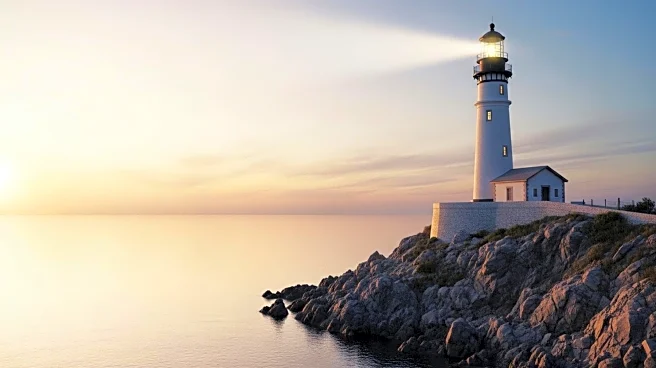What is the story about?
What's Happening?
A court in Trapani, Italy has ruled in favor of a migrant rescue NGO, lifting a detention order on a rescue ship that had refused to divert to a distant port for disembarkation. The ruling criticized Italy's interior ministry for imposing excessive penalties and praised the humanitarian objectives pursued by the vessel's operators. The NGO, Mediterranea, had previously been fined and detained for delivering rescued migrants to an unauthorized port in Sicily, defying orders to dock in Genoa, which was significantly further away. The court's decision is seen as a symbolic victory for the NGO community, highlighting the importance of prioritizing human life and dignity over bureaucratic directives.
Why It's Important?
This ruling underscores the ongoing tension between humanitarian efforts and governmental regulations in Europe, particularly concerning migrant rescues in the Mediterranean. The decision may influence future legal interpretations of similar cases, potentially easing operational restrictions on NGOs dedicated to saving lives at sea. It highlights the broader debate on immigration policies and the balance between national security and humanitarian obligations. The ruling could embolden other NGOs to challenge restrictive measures, potentially leading to more favorable conditions for migrant rescue operations.
What's Next?
The court case continues, and Mediterranea is expected to resume its rescue operations soon. The ruling may prompt the Italian government to reconsider its approach to regulating migrant rescue missions, possibly leading to amendments in the Piantedosi Decree. Other NGOs might follow suit, challenging similar penalties and advocating for more humane policies. The decision could also spark discussions within the EU about harmonizing rescue operations and port call regulations, aiming for a more coordinated and compassionate response to the migrant crisis.
Beyond the Headlines
The case highlights ethical considerations in maritime rescue operations, emphasizing the need to protect vulnerable individuals at sea. It raises questions about the legal responsibilities of states versus humanitarian organizations and the moral imperatives guiding rescue missions. The ruling may contribute to a shift in public perception, fostering greater support for NGOs and their critical role in addressing humanitarian crises.
















